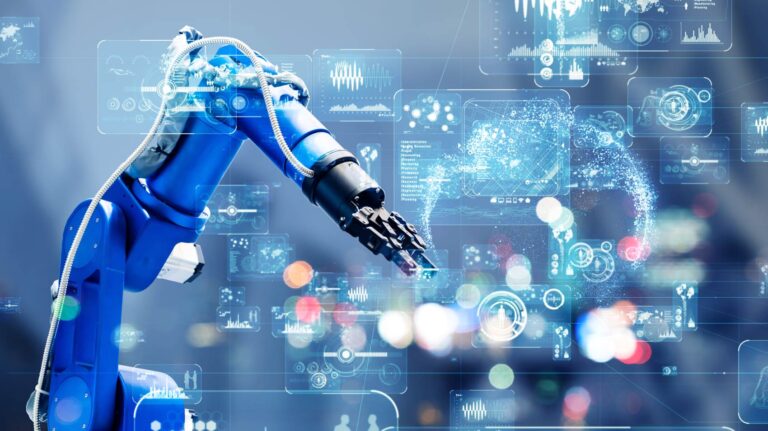The arrival of the IoT, or the Internet of Things devices brought with it a matching switch in the eCommerce world as lifestyles of consumers continue to evolve and get more adaptive
In the same way, the growing rate at which internet shoppers adopted the web has seen the great surge and growth of the eCommerce industry. Truly, the future of the retail industry is occuring in the digital space.
An eCommerce development company catering to provide services to online retail clients are adopting the Internet of Things technology to boost user experience all over the world. This only goes to show that the eCommerce and retail fields should always be on top of the digital marketing world trends to be competitive and profitable all the time.
How does popular IoT impact eCommerce? Moreover, how is eCommerce set to immensely gain from the technology? Here are some of the most exciting ways where IoT impacts the eCommerce industry.
Impact of IoT on eCommerce
Finer logistics and tracking
With the Internet of Things, retailers get greater visibility on the order fulfillment process, thus they’re able to meet consumer demands who shop more over the web. The IoT makes it possible to track when orders are placed, to the time they reach the doorstep of customers, thus retailers benefit greatly from the technology. Furthermore, retailers could keep tabs of every inventory via management systems wherein goods are automatically located. Cloud-based techs like RFID, or Radio Frequency Identification and GPS offer data to retailers as well, including weather, traffic situation, personnel identities, location, and more efficient logistics management. It additionally automates shipping and delivery so problems like missing shipments could be prevented.
Boosts manufacturer and consumer relationships
IoT helps establish a good relationship between the manufacturer and the consumer via connected appliances, like the durable goods that both parties enjoy a relationship that’s for long-term. Such as for instance printer manufacturers could offer replacements of a cartridge from the printer themselves. This way, the brand stays in the minds of consumers over the lifetime of the product.
In the same way, the Internet of Things could provide retailer revenue streams via building new business models, such as offering ongoing services, like for instances remote monitoring, predictive maintenance, and performance analytics for a particular product or products.
Management inventory automation
More control on the products coming in and going out of their warehouse is the desire of every eCommerce retailer to determine what goods have gone out of stock. With tools like RFID tags and IoT sensors installed in inventory systems, business processes and operations become easier, and there’s no need for retailers to hire store managers to check merchandise physically since they could get information about their stock in real time.
Since the IoT could collect and send out fresh and relevant item data to ERP systems, eCommerce could greatly benefit from it. Moreover, it lessens human error in taking stock, ordering, and reordering of goods. Retailers not only get to track inventory through smart shelves and sensors that track temperature, they’re also able to check the optimal temperatures of perishable goods.
Shopping process automation
Today, automated checkouts are now becoming a reality, thanks to the IoT. The purchasing process gets to be automated, thus customers walk in, make a purchase, and walk out with the cost billed to their smartphones.
It’s expected that predictive systems later on will determine when a customer is ready to go shopping and pack goods that they could readily pick up, based on the shopping list. Once they send details of the product they want to buy to vending machines, they only have to pick up from the drive through.
Personalized actions and information
The Internet of Things has also brought together personal data and of brands to deliver experiences that are more personalized. eCommerce businesses are able to leverage consumer connection to offer more personalized information and actions, and at the same time interweave data to personalize the experience further to households and every member.
A great example is a connected car in which the driver receives offers custom-made for him or for her. A family with a smart fridge on the other hand gets customized experiences to what their preferences are. As marketers get access to more insight and data into the behavior of consumers, they could make use of it to get more appeal to customers and influence the customers’ shopping decisions.
eCommerce sites that are IoT-oriented
The online shopping trend has grown considerably, and along with it comes the stress on retailers to ensure an easy user experience. Retailers must find out how to use data, which comes in various devices and sources with the IoT, being responsive not just to smart devices, but also to other connected things.
Retailers therefore could build responsive sites, which make the most out of the Internet of Things to boost the user experience. An eCommerce platform like Magento could create ultra-responsive eCommerce websites that integrate IoT to boost processes.
The eCommerce industry should bear in mind that the IoT ecosystem inherently is about inter-connected devices and things. Thus, eCommerce that’s IoT-enabled is not much a revolution but an evolution.
About the Author

Henrik Adams is an eCommerce Industry Analyst, who worked with one of the leading Magento Development Company — Sparsh Technologies.


